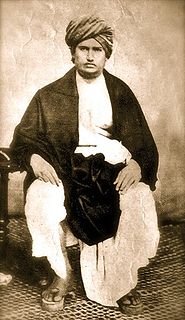A Quote by Ben Lerner
When the narrator feels like an octopus, when he says his limbs are starting to multiply, he means he has inklings of orders of perception beyond his individual body.
Related Quotes
The person senses what it feels like to be free from inhibitions. At the same time he feels connected and integrated – with his body and, through his body, with his environment. He has a sense of well-being and inner peace. He gains the knowledge that the life of the body resides in its involuntary aspect. […] Unfortunately these beautiful feelings do not always hold up under the stress of daily living in our modern culture. The pace, the pressure and the philosophy of our times are antithetical to life.
It is God's earth out of which man is taken. From it he has his body. His body belongs to his essential being. Man's body is not his prison, his shell his exterior, but man himself. Man does not "have" a body; he does not "have" a soul; rather he "is" body and soul. Man in the beginning is really his body. He is one. He is his body, as Christ is completely his body, as the Church is the body of Christ
Educational exchange can turn nations into people, contributing as no other form of communication can to the humanizing of international relations. Man's capacity for decent behavior seems to vary directly with his perception of others as individual humans with human motives and feelings, whereas his capacity for barbarism seems related to his perception of an adversary in abstract terms, as the embodiment, that is, of some evil design or ideology.
All of man's ills are due to his lack of knowing God within him. The perfection of God's universe is founded upon its perfection of Balance. All of man's ills are caused by toxic poisons generated in his body through unbalance affecting his power of control over the functions of his electric body. Man, as an extension of God, is creator of his own electric body. He is master of his electric body to the extent of his knowing the Light of God in him. ... God says to man: »What I do, ye shall do«, but man is unbelieving for long ages.
The fact that labour is external to the worker, i.e., it does not belong to his intrinsic nature; that in his work, therefore he does not affirm himself but denies himself, does not feel content but unhappy, does not develop freely his physical and mental energy but mortifies his body and his mind. The worker therefore only feels himself outside his work, and in his work feels outside himself.
Speed is the form of ecstasy the technical revolution has bestowed on man. As opposed to a motorcyclist, the runner is always present in his body, forever required to think about his blisters, his exhaustion; when he runs he feels his weight, his age, more conscious than ever of himself and of his time of life. This all changes when man delegates the faculty of speed to a machine: from then on, his own body is outside the process, and he gives over to a speed that is noncorporeal, nonmaterial, pure speed, speed itself, ecstasy speed.
Liz, I like you very much," he says. "Oh," she says, "I like you very much, too!" Owen is not sure if she means "O" for Owen, or just plan "Oh." He is not sure what difference it would make in either case. He feels the needs to clarify. "When I said 'I like you very much,' I actually meant 'I love you.'" "O," she says, "I actually meant the same thing." She closes the car door behind her. "Well," he says to himself, driving back to his apartment, "isn't that something?
We are in the society of the teacher-judge, the doctor-judge, the educator-judge, the 'social-worker'-judge; it is on them that the universal reign of the normative is based; and each individual, wherever he may find himself, subjects to it his body, his gestures, his behavior, his aptitudes, his achievements.






































